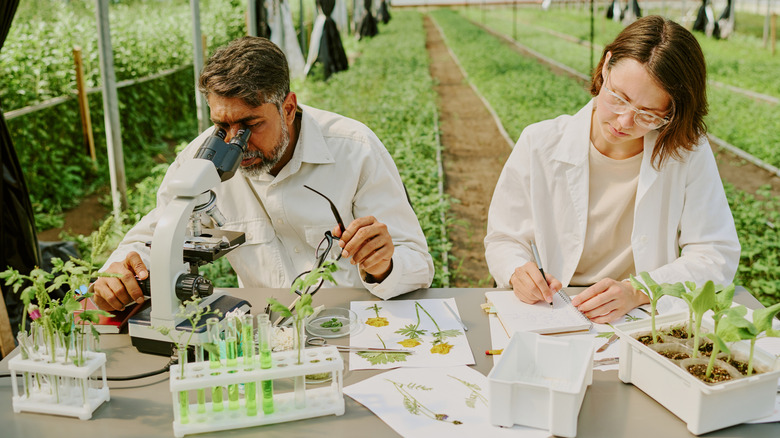Why Propagating Plants Could Cause You A Legal Headache
Gardeners love to propagate plants because it's a fantastic way to obtain more plants at little to no cost. You can propagate houseplants to fill your home with free greenery year-round, or propagate fruits and vegetables to cut down on grocery bills. Or maybe you love to share what you've propagated, whether by giving plants and cuttings to friends, donating them to nonprofit plant sales, or even selling them. You may not be aware, however, that you could be breaking the law by violating the Plant Patent Act if you engage in these activities.
The Plant Patent Act was first passed in 1930 and has undergone many amendments in the years since. It protects the rights of anyone who "invents or discovers and asexually reproduces any distinct and new variety of plant, including cultivated sports, mutants, hybrids, and newly found seedlings, other than a tuber propagated plant or a plant found in an uncultivated state," for up to 20 years after discovery. Anyone except the patent-holder is excluded "from asexually reproducing the plant, and from using, offering for sale, or selling the plant so reproduced, or any of its parts." Bottom line: Propagating patented plants is illegal.
Will some sort of plant posse swoop in and arrest you if you are caught propagating or selling a patented plant? Probably not. Commercial sellers, not average consumers, are the targets of the law. It's not unheard of for an individual to be sued over a plant patent, but it's rare.
Before propagating, be sure the plant is not patented
As you're getting ready to propagate from cuttings, how do you know if a given plant is patented? A patented plant should be labeled with the letters PP followed by the patent ID number or the designation PPAF (Plant Patent Applied For). Plant and seed catalogs also list these numbers, and you can look up patented plants at Patent Public Search. The patent-holder cannot collect damages from violators if the plant is not labeled as patented. However, once they contact the offenders, any further activity can be considered unlawful.
Plant patents benefit inventors of new plants, and encourage innovation and new discoveries. Plant developers might not exert effort and resources into research and development without patent protection. Patents help make new plant varieties possible, which is especially important in agriculture. The existence of these patents won't change much for most home gardeners, unless you plan to sell your propagated plants. But next time you visit your garden center, check labels for patent status. You can then propagate plants like a pro with a clear conscience.

